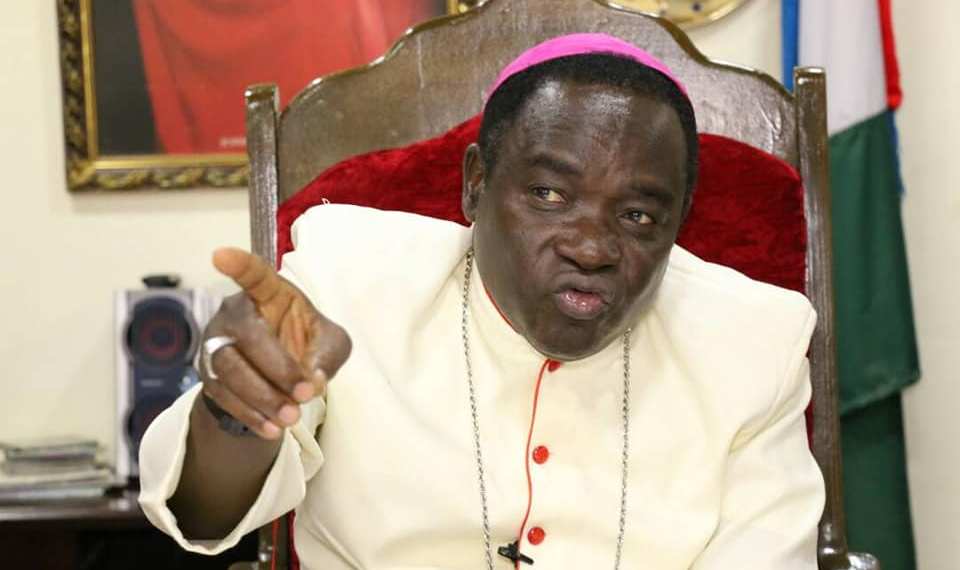- Bishop Kukah attributed recent stampedes in Oyo, Anambra, and Abuja to the government’s failure to address the hunger crisis effectively
- He criticized the government for not acting decisively, stating that citizens’ desperation reflects its failure to alleviate hunger
Bishop Mathew Hassan Kukah of Sokoto Diocese has attributed the recent stampedes in Oyo, Anambra, and Abuja to the government’s failure to tackle the hunger crisis effectively.
The tragedies which occurred during food distribution events claimed several lives and highlighted the desperation of many Nigerians.
In his Christmas message, Bishop Kukah expressed sorrow over Nigeria’s struggles despite over 60 years of independence. He described the nation as “still walking in darkness,” citing a lack of progress tied to greed, nepotism, and ethnicity.
“Imagine if light shone on our politics, public service, and institutions,” he said. “Nigeria’s journey to greatness remains hindered by forces prioritising ethnicity and religion over citizenship. These feelings of exclusion drive many to frustration and violence.”
He emphasized the importance of embracing diversity, urging Nigerians to align with the ideals of the national anthem, which promotes unity despite differences in tribe and tongue.
Bishop Kukah also addressed barriers discouraging Nigerian youths from active political participation. While acknowledging the progress made since the passage of the Not Too Young to Run Bill in 2018, he noted that high costs of running for office and lack of internal democracy remain significant obstacles.
He commended young Nigerians who have won elections but called for reforms to make politics more accessible to the youth.
The Bishop praised the federal government’s educational loan scheme but advised that it should extend beyond university students to include those pursuing vocational and technical skills.
He urged the government to remove bureaucratic bottlenecks and ensure the scheme’s implementation fairness, enabling more youths and their families to benefit.
“Poverty should never exclude anyone from obtaining a quality education,” he said, encouraging youths to take advantage of the initiative.
Bishop Kukah lauded the strides made in fighting insecurity but called for a detailed work plan with clear deadlines to secure the nation.
He linked insecurity to unemployment and violent extremism, stressing that addressing these root causes is crucial for sustainable peace.
“Insecurity is the child of corruption. Without tackling unemployment and extremism, the violence will persist,” he stated.
Reflecting on the recent stampedes, the Bishop lamented the conditions of hunger and desperation that led to the tragedies in Okija, Ibadan, and Abuja.
He criticized the government for not acting decisively to address the food crisis, stating that these deaths were avoidable.
“The desperation of citizens reflects the government’s failure to address hunger effectively,” he said. He urged the government to collaborate more closely with institutions working for the common good to prevent similar tragedies in the future.
Bishop Kukah extended his condolences to the families of the victims and called on the government to ensure every Nigerian’s dignity and well-being.
